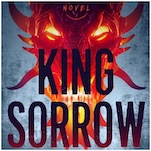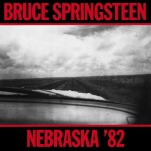Behold a Dark Horse: Gibson’s J-45 is Under Fire
Singer/songwriter Aimee Mann bought her first J-45 after a car crash claimed her old J-160, and she hasn’t turned back since. When I ased her what made her choose the J-45, she said she wanted a guitar that not only sounded right, but felt right. “It’s a very personal thing,” she told me. “…You want to play a guitar that’s an extension of you.”
When you lift the J-45 into your arms, you’re shocked at how solid it feels for a bantamweight. The guitar is surprisingly light; it’s clear why spruce was used to make airplanes. The J-45’s smaller size, shoulders and childbearing hips make it mildly suggestive—a little sexy, demanding intimacy. You want to sit down to play it. The soft-shouldered body seems to curve perfectly into your own. When you graze your fingers from E to E, you feel the humid notes vibrate against your ribs. They release easily, a drunk and lovely exhalation.
This guitar lacks the ostentation that others famously strut. There aren’t any flashy tuners, ornate pick guard designs, or glowing mother-of-pearl merit badges along the neck. The bridge looks like something a boy scout could whittle. The sound hole is as basic as a coffee coaster. This is not a guitar that dresses up and buys you drinks. The J-45 gets to the point.
The glory of the J-45 is well-noted, but its troubles less so. In 2003, Gibson CEO Henry Juskiewicz vowed that the company would never manufacture guitars from rare Brazilian rosewood, even going so far as to demand Gibson luthiers at a Montana factory to stop using tainted wood they’d already purchased. In a 2007 interview with Premier Guitar magazine, he said, “We want to be part of the solution instead of the problem.” The next year, Gibson representatives made a trip to Madagascar, another source of wood, to foster goodwill between the two worlds. It seemed clear that Gibson had realized that being environmentally-minded was not only good for forest ecology, but—in an ever-greening economy—good for business, too.
-

-

-

-

-

-

-

-

-

-

-

-

-

-

-

-

-

-

-

-

-

-

-

-

-

-

-

-

-

-

-

-

-

-

-

-

-

-

-

-








































